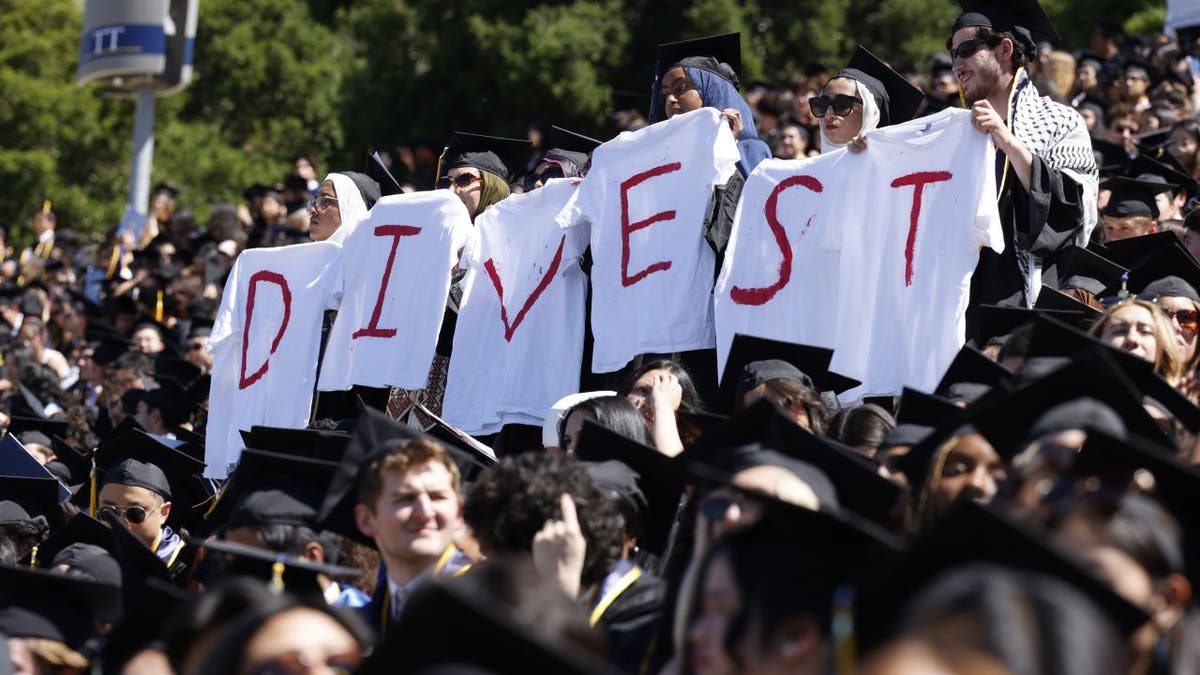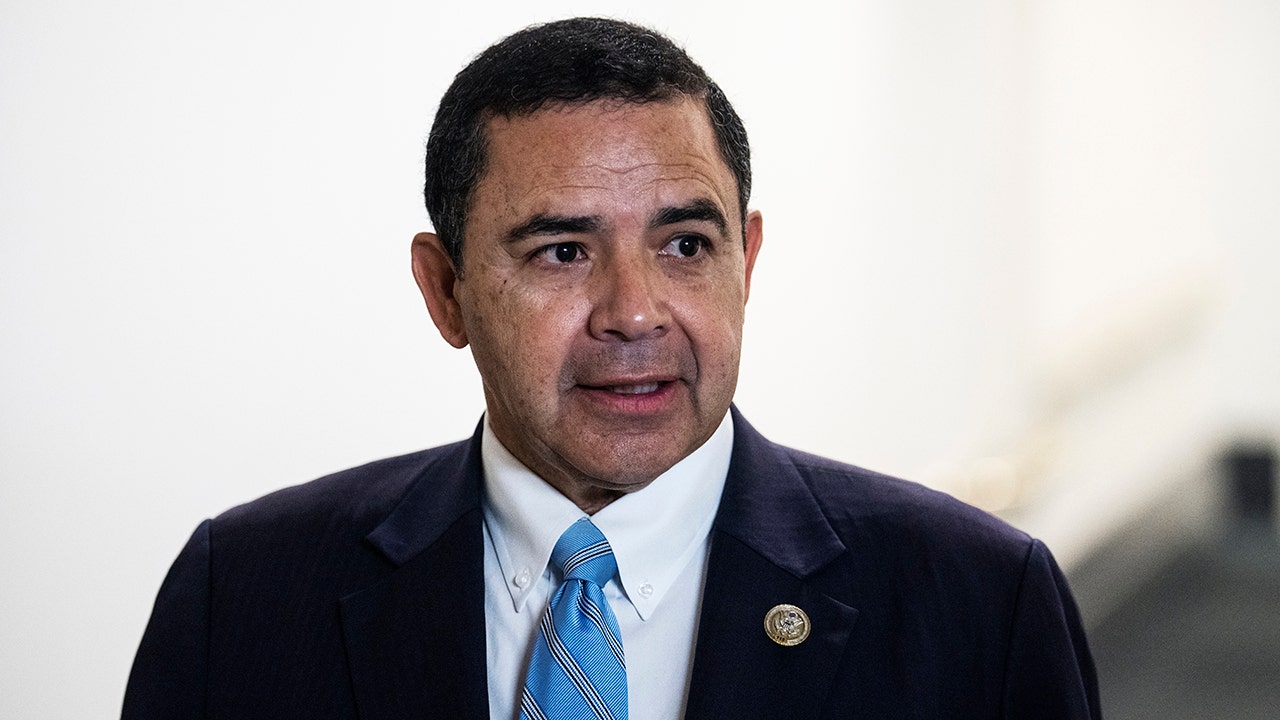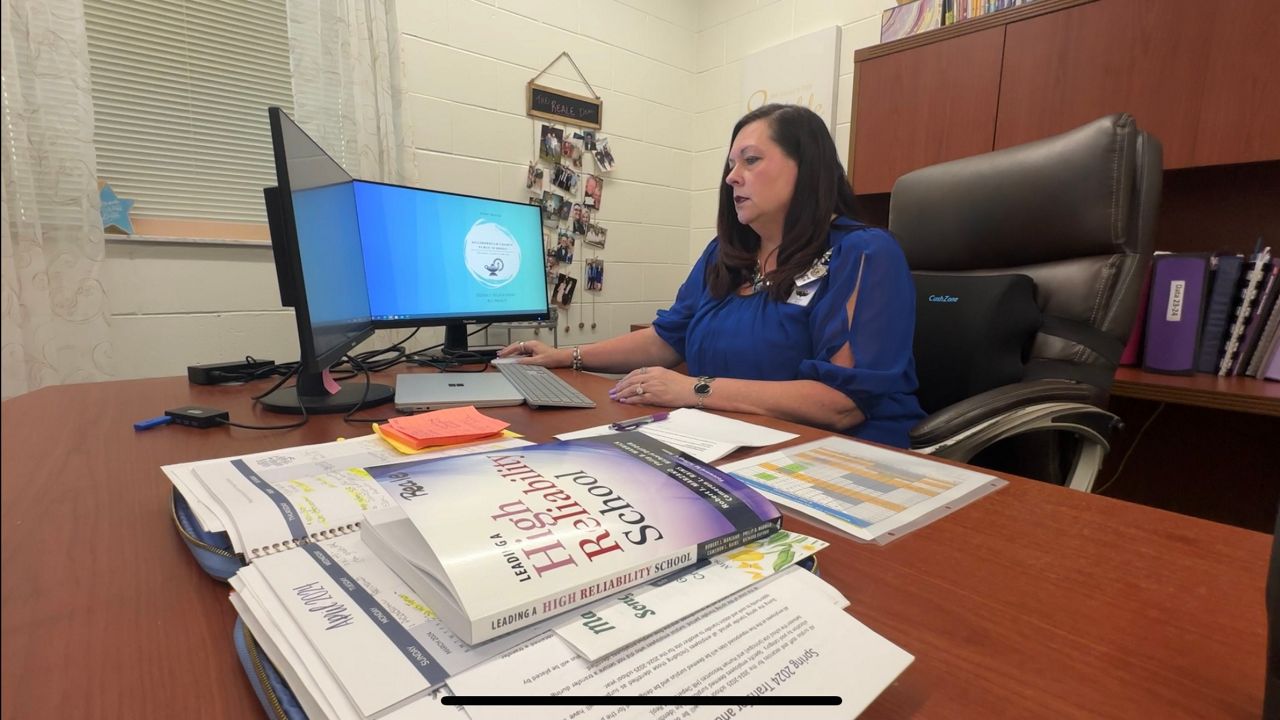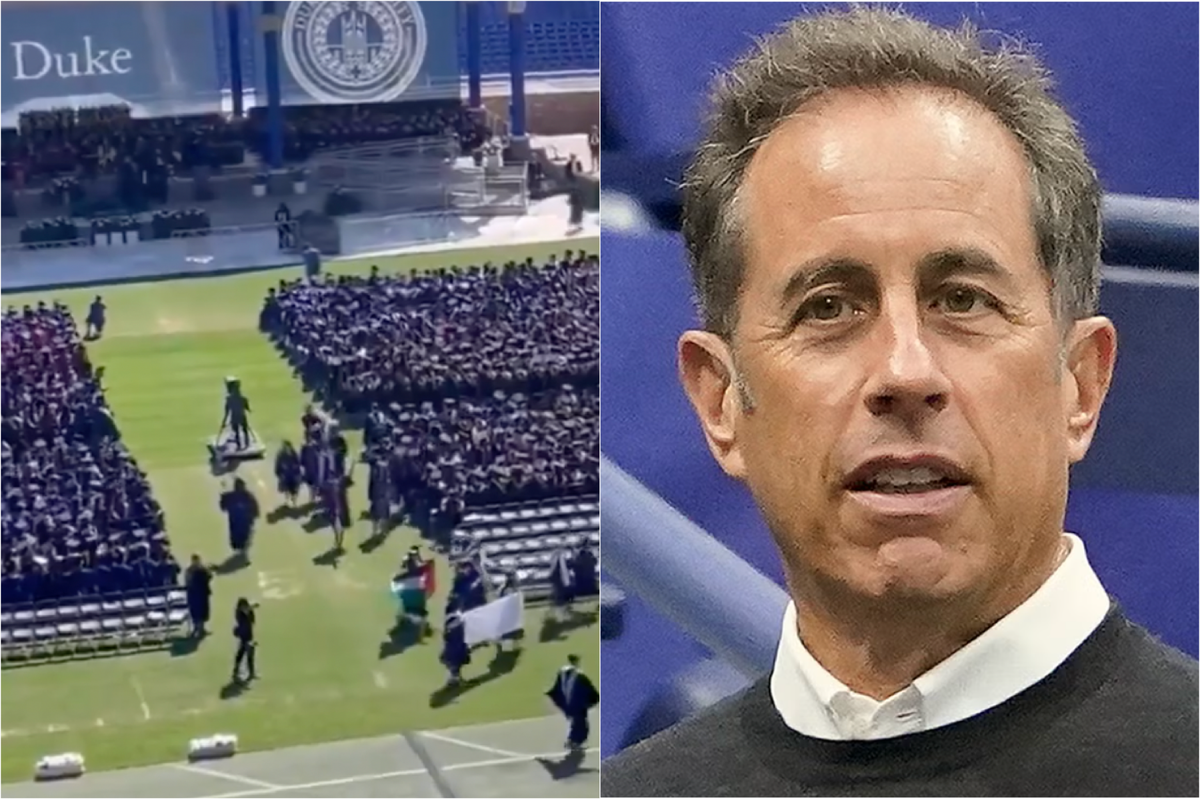California
Amid protests over Gaza, Southern California colleges juggle student safety, graduation plans

As tensions boil at universities across the country amid scattered police confrontations with pro-Palestinian protesters, Southern California colleges are grappling with campus safety issues as graduation ceremonies near in the coming weeks.
Locally, major disruptions have occurred at four campuses — USC, UCLA, UC Irvine and Pomona College — over student-led demands for a permanent ceasefire in the war on Gaza and an end to financial support for Israel. And although security concerns there have been the most intense, other Southern California colleges are now taking measures to ensure their commencement activities — and the weeks leading up to them — are free of similar clashes.
Turmoil has been highest at USC, which found itself in a national spotlight when it canceled the commencement speech by Muslim valedictorian Asna Tabassum of Chino Hills over security concerns triggered by her anti-Israel social media views. A backlash over that decision from students and outside groups prompted the university to cancel all graduation speakers and honorees at its main commencement ceremony.
Then, days later as tensions flared, the LAPD arrested nearly 100 pro-Palestinian protesters at USC. University officials responded by canceling its “main stage” commencement scheduled May 10 over “new safety measures.” The ceremony was expected to draw 65,000 people to Alumni Park.
The school, however, still will host “dozens” of smaller, secure commencement events and receptions from May 8 to 11 where graduates can walk across the stage to receive their diplomas. The secured events will be ticketed, with a “clear bag” policy.
‘Massive overreaction’
Some have condemned USC for what they believe was an escalating series of missteps that provoked much of the hostility on campus.
Mike Ananny, a tenured USC professor who was among 50 faculty members protesting on campus Friday, April 26, blamed the university for “a massive overreaction” to the threats that surfaced over Tabassum’s speech. USC, he said, could have resorted to other options over stripping the valedictorian of her voice.
“I find ‘safety concerns’ hard to believe because the university has hosted many other contentious speakers and has invested security resources, so they chose not to do that,” said Ananny, 48. “I think (students’) voice is very much needed at this time. The big error and failure was inviting the LAPD in riot gear with nonlethal weapons, intimidating students and faculty and, really, the LAPD turned the campus into a zone of military activity.”
Must ‘protect our community’
However, USC President Carol Folt defended the university’s actions.
In a community email sent late Friday, Folt reiterated her responsibility as president to “uphold our Trojan values so that everyone who lives, learns, and works here can have safe places to live, learn, and speak.” She also called Alumni Park, the center of protests and the traditional site of commencement, “unsafe,” claiming that buildings were vandalized, among other safety issues.
“No one wants to have people arrested on their campus. Ever,” Folt said. “But, when long-standing safety policies are flagrantly violated, buildings vandalized, DPS directives repeatedly ignored, threatening language shouted, people assaulted, and access to critical academic buildings blocked, we must act immediately to protect our community.”
USC graduate student Morgan Dommu said the university hasn’t gotten the message from protesters.
“It’s clear whose interests this school has at heart,” Dommu said. “We want to learn, just not at the expense of someone else’s life.”
No ‘right to intimidate’
Meanwhile, organizers from the student-led USC Hillel issued a statement on Instagram last week saying that while students have a right to protest, “they do not have the right to intimidate or threaten Jewish students.”
“No student should feel unwelcome in their own campus home, and our Jewish students are telling us that these actions and this hostile rhetoric induce feelings of fear, terror, and instability,” the statement read. It further called on USC partners to ensure a safe campus.
Calling the commencement cancelation a “heavy blow” and noting that students in the Class of 2024 also were deprived of their high school graduation ceremonies because of the pandemic, the group decided to organize its own Jewish Communal Commencement at the Hillel on May 10.
Other campus protests
Across town at the Westwood campus of UCLA, a “Palestine solidarity” encampment that started Thursday with students outside Royce Hall grew to include more than 1,000 activists. They demanded that the UC system sever its connection to Israeli universities, support an immediate ceasefire in Gaza and end “the occupation and genocide in Palestine.” No arrests have been made.
Mary Osako, vice chancellor for UCLA’s strategic communications, said the university is trying to uphold its “history of peaceful protest” as it works to strike a balance between safety and First Amendment rights of free speech.
“It’s also important to note that we are following University of California systemwide policy guidance, which directs us not to request law enforcement involvement preemptively, and only if absolutely necessary to protect the physical safety of our campus community,” Osako said.
UCLA, which does not have valedictorians or a “main” graduation ceremony like at USC, is planning for multiple college ceremonies on Friday, June 14. Officials did not respond to questions about security related to the events.
At UC Irvine, where a large pro-Palestinian demonstration was held on campus Thursday, this year’s graduation will be “business as usual,” spokesperson Tom Vasich said.
“A very different story” from USC, Vasich said.
While security protocols were in place at the campus-wide demonstration, Vasich said the university did not want to escalate the situation, saying they “want to protect (the protesters’) First Amendment rights.”
The school, which also does not have valedictorians, will host various commencement ceremonies from early May through mid-June.
Abri Magdaleno, a graduating English major at UCI, acknowledged students are concerned “that things are going to be impacted, such as commencement, because of how intense this is.”
“UCI has always been business as usual for pretty much everything — except for COVID, of course,” Magdaleno said. “Ultimately, I don’t think commencement will be affected. We’ll have to see what the administration does.”
Other colleges carry on
Officials at Chapman University in Orange said the ongoing Israel-Hamas conflict has not affected any plans for graduation, with ceremonies scheduled from May 17 through 19. On Wednesday, the university’s Students for Justice in Palestine held a small protest on campus, but the event did not interrupt campus operations and there were no complaints from public safety personnel, said Chapman spokesperson Molly Thrasher.
Thrasher said the university is in the midst of commencement planning, and will continue to monitor political activities on campus.
At Cal State Northridge, commencement ceremonies will go on as scheduled from May 17 through May 20. The school’s website includes messaging on how it will handle security through the Department of Police Services, including metal detector screenings and a one-bag policy. Spokesperson Perrine Mann declined to comment about whether the potential for protests has affected their graduation plans.
Cal State Los Angeles also has “no plans to alter our traditional commencement” on May 20 and 21 at the Los Angeles Convention Center, said Victor M. Rojas Jr., the college’s chief of staff. Rojas added that all campus events have proper protocols to “ensure a safe and celebratory environment for all participants and attendees.”
Cal State LA students are planning a pro-Palestine protest on May Day, May 1.
“The university values freedom of expression as a cornerstone of a democratic society and believes it is essential to the educational process,” Rojas said.
Cal State Long Beach, the site of protests and vigils in the aftermath of the Oct. 7 attacks in Israel, has not had any form of physical attacks or violence, according to spokesperson Jeff Cook.
“We’ve remained concerned for any member of our community who feels impacted by perceived antisemitism or Islamophobia, and have in place procedures to both provide support and the substantive review of any concerns, if made,” Cook said in an email.
Cook also said safety during commencement — planned for May 19 through 23 at Angel Stadium — is “always central to our planning.”
At Cal Poly Pomona, spokesperson Cynthia Peters said university leadership, police and graduation organizers have been working together on plans “to ensure the safety of all commencement ceremonies,” which are planned for May 17 through 20 in the school quad.
Peters said there has been no major political disruption on campus, and that Cal Poly’s Dean of Students Office has “been in continuing dialog with the student groups most impacted by conflict in Gaza and Israel to listen and to learn how the university can best support them.”
At Cal State San Bernardino, commencement ceremonies are planned for May 17 and 18 at Toyota Arena in Ontario. Spokesperson Alan Llavore said university and city police will be present to ensure “that commencement can take place with little to no disruptions.”
UC Riverside also will conduct most of its eight graduations — scheduled from late May through mid-June — at Toyota Area. Spokesperson Sandra Martinez said university and city police will focus on “pursuing the highest level of safety for the community and guests.”
Martinez said that UCR has not had any significant protest activity on campus lately related to the Gaza conflict.
Nationwide reckoning
Some believe that unrest on college campuses is merely a reflection of a nationwide reckoning.
At a news conference in Beverly Hills late last week, Republican U.S. Senate candidate Steve Garvey called campus turmoil — from Columbia and Ohio State to the University of Texas and NYU — a “moment where terrorism is disguised as free speech.”
“I believe demonstrations that allow people to build encampments that obstruct the pathway to classes and the opportunity to learn is terrorism,” Garvey said. “I believe there is free speech but I also believe that demonstrations that disrupt the business and natural flow of colleges and universities to teach our young children about the future, and how to be future leaders, are interrupted by terrorists.”
Brian Levin, a professor emeritus at Cal State San Bernardino and founder of the Center for the Study of Hate and Extremism, noted the rising number of hate crimes and rhetoric among both anti-Jewish and anti-Muslim groups in major cities since the Hamas attacks on Oct. 7.
Levin argued that college campuses are meant to foster open, nuanced communication — and students oftentimes have the loudest voice when it comes to causes. He said administrators must be sensitive about the “generational grief” that students, particularly those of color, are experiencing, and do their best to avoid a “militarized response when free speech has a technical violation of rules.”
“Taking passionate moral positions on the issues of the day is not only the right of students, but to peaceably do so is an obligation,” Levin said. “Universities have an obligation at large to engage in this conversation. … They are supposed to be that shining place, (where) free expression is the default.”
Staff writers Kaitlyn Schallhorn, Clara Harter and Hanna Kang contributed to this report.

California
The surprising force stalling climate progress: California restaurants

By Ben Elgin | Bloomberg
In the fight to ratchet down climate emissions and soothe the most dangerous effects of an overheating planet, one of the most withering setbacks in recent memory wasn’t delivered by the oil industry or coal excavators, but, rather, a group of restaurants in California.
When Berkeley became the first city in the country to ban the extension of gas pipes into new buildings, it targeted a contentious source of climate pollution. The combustion of gas inside of homes and businesses to power things like furnaces, water heaters and stoves accounts for 9% of California’s emissions, or 33 million metric tons of heat-trapping gases per year, equivalent to the entire climate footprint of Hong Kong.
With the US gas system continuing to expand – the industry connects one new customer to the gas grid each minute – Berkeley was the first to try to stop this climate problem from becoming bigger. Since it enacted its ordinance in 2019, more than 100 cities, counties and states across the country have followed.
Today, these efforts are reeling. The California Restaurant Association took the city to court in November 2019, arguing that its 20,000-plus members preferred cooking with a gas flame and that, even though the rule wouldn’t require changes to existing buildings, such an ordinance would limit their options when opening new locations. Moreover, they argued, federal energy laws preempt these aggressive local ordinances.
After a see-sawing legal battle, the restaurants prevailed. When Berkeley’s last-ditch request for a rehearing was rejected earlier this year, the city in March canceled its ordinance, prompting a jubilant CRA to declare it a “significant triumph for chefs and restaurateurs.”
Now, Bloomberg Green has learned, a coalition of gas companies and their supporters are planning to wield the restaurants’ legal victory to beat back similar rules across the western US. This puts restaurants directly at odds with a hospitable planet, as there’s no feasible pathway to avert catastrophic warming if places like California don’t sharply reduce gas combustion in buildings, according to climate experts.
“It’s rather irritating to have restaurant owners put their heads in the sand,” says Robert Howarth, a professor of ecology and environmental biology at Cornell University. “We have to move away from natural gas. The planet demands it.”
This is not the first time restaurants in California have sided with industry giants in an epic battle over public health. In 1987, a year after US Surgeon General C. Everett Koop warned second-hand smoke was causing lung cancer in healthy nonsmokers, Beverly Hills became the first city in the state to ban smoking inside restaurants. Several nearby towns followed with similar proposals.
Restaurants howled in protest. Some eateries in Beverly Hills complained their sales plummeted overnight by nearly a third, though tax records later showed no such drop had occurred. Within months, the Beverly Hills city council walked back its rule.
These public health battles, nearly four decades apart, share another striking resemblance: Restaurant groups served as the public face for both efforts, while they worked alongside hidden powerful interests.
In the smoking fracas, millions of cigarette-company documents later unearthed during litigation revealed the tobacco industry recruited and worked closely with restaurant groups around the country, including CRA, to fight smoking restrictions. The industry even surreptitiously funded and created the Beverly Hills Restaurant Association, which led the successful pushback against the state’s first ban.
“Public health advocates need to understand that, with rare exceptions, when they talk to organized restaurant associations, they are effectively talking to the tobacco industry,” warned researchers at the University of California San Francisco in a 2002 paper.
In today’s fight over gas, CRA also hasn’t acted on its own. It refuses to say who paid the legal bills for its Berkeley suit. As a nonprofit, it must make its tax filings public. In these forms, nonprofits are supposed to disclose contractors to whom they paid at least $100,000 in the previous year. CRA regularly lists law firms working on its behalf, such as those litigating Covid-related restrictions. But the restaurant group has never disclosed a payment to Reichman Jorgensen Lehman & Feldberg LLP, the law firm that spearheaded the Berkeley case.
The Berkeley lawsuit topped the $100,000 threshold. When Sarah Jorgensen, the law firm’s founding partner, spoke at a National Propane Gas Association board meeting in February, she was asked what a legal challenge of this sort would cost, according to a recording of the discussion heard by Bloomberg Green. After an NPGA executive estimated it would require $300,000 to $400,000 to take a case to court and “another couple of hundred thousand” for appeals, Jorgensen said “we definitely spent more than that on Berkeley.” In a written response to questions, Jorgensen declined to say who paid their legal bills.
So who picked up the tab? SoCalGas, the nation’s largest gas utility whose territory covers 24,000 square miles from the Mexican border to central California, paid Reichman Jorgensen more than $4 million between 2020 and 2022, according to its regulatory filings and as reported last year by the Sacramento Bee. When compelled by state regulators to explain some of these payments, SoCalGas denied it was for the Berkeley case, but rather to examine legal issues such as “government actions potentially affecting natural gas service” and “whether they might be preempted by federal law” (which was the core issue in the Berkeley case).
Meanwhile, SoCalGas and San Diego Gas & Electric, both subsidiaries of energy giant Sempra, combined to contribute over $1.3 million to CRA and its charitable arm since 2019, a sharp uptick from previous years. In a statement, SoCalGas said that it didn’t fund the Berkeley suit and its contributions went to the restaurant association’s charitable arm, which supported eating establishments that struggled during the pandemic.
Some close watchers of the utility, though, don’t buy it. Given the payments funded an examination of “the very same legal issues raised in that litigation,” declared the Public Advocates Office, an independent watchdog for the state’s utility regulator in a filing last year, “it strains credibility to suggest that the utility did not fund research that supported the California Restaurant Association’s litigation.”
Matt Vespa, a senior attorney at Earthjustice and lecturer at the University of California Berkeley School of Law, who dug through a thicket of utility filings to unearth many of the gas industry payments, agrees. “It’s clear to us that SoCalGas underwrote the lawsuit,” he says. (SoCalGas called such claims “irresponsible.”)
Jot Condie, chief executive officer of CRA, has dismissed such questions, telling one news outlet back in 2019 that it amounted to “looking for monsters under the bed.” He declined to be interviewed by Bloomberg Green and would not say who funded the suit, but in written responses to questions, Condie rejected parallels to the indoor-smoking fight. “If comparing these two dissimilar issues decades apart is intended to portray the association as doing the bidding for other interests, it’s an inaccurate and misleading portrayal of this association’s 118-year history,” he said.

He added that “the decision to fight the illegal city ordinances was CRA’s alone,” and that it supports California’s climate goals. “There is a way to transition to a greener economy without violating federal energy law and harming the restaurant community,” he said. When asked for details on what such a low-carbon pathway would look like, he declined to provide specifics. “The emphasis must be on a transition,” he said. “No economy, industry, or business can be expected to flip a switch overnight.” (Berkeley’s rule wouldn’t have required any changes to existing restaurants.)
For longtime tobacco watchdogs, like Joelle Lester, executive director of the Public Health Law Center at the Mitchell Hamline School of Law, it amounts to more than a striking case of déjà vu. They’re concerned the tactics that once slowed indoor-smoking bans will also stymie efforts to solve climate change.
“We started realizing how closely the gas companies’ tactics mirror Big Tobacco, almost like they’re following a script,” says Lester, whose group recently published a report examining the similarities. “We thought it was important to sound the alarm that there’s this other industry doing really the same thing.”
Gas wasn’t always a widely viewed climate villain, with the Center for American Progress, a left-leaning think tank, even heralding it 15 years ago as a “bridge fuel” to a cleaner future. When burned, it produces about half the heat-trapping emissions of coal. In the mid 2000s, new drilling techniques like fracking unlocked huge quantities of cheap gas. Coal plants couldn’t compete on price and began shutting down.
But as many studies have shown, the climate harms from gas are extensive. When methane is unearthed and delivered to homes and businesses through thousands of miles of pipelines, some of the gas escapes. Because unburned methane causes more than 80 times the warming as an equivalent amount of CO2 over two decades, these leaks nullify much of the fuel’s improvement over coal.
Governments today are pushing for dramatic shifts away from gas. Lawmakers in the European Union agreed in April to abolish fossil fuels in new construction by 2030, while requiring retrofits for the least-efficient buildings. New York State, meanwhile, enacted a rule last year to ban gas in most new construction. Reichman Jorgensen filed a suit in October to block it on behalf of a slew of plaintiffs including homebuilders and gas companies. (The New York State Restaurant Association says it’s concerned about the rule but didn’t join the suit because restaurants are exempt from the ban.)
The grim outlook for gas has sparked energetic pushback by restaurant groups around the country. In the District of Columbia, where the combustion of gas in buildings contributes 22% of its climate footprint, the Restaurant Association of Metropolitan Washington emailed members in February warning them of “misguided energy policies” that would limit their access to gas. It urged them to become advocates for their local utility, Washington Gas, describing it as a “trusted partner to the business community for over 175 years.” The utility recently fought a rule that would fund retrofits and electrification of homes for 30,000 lower-income residents. (RAMW chief executive Shawn Townsend declined to comment.)
This issue is supercharged in California, where homes and businesses are more reliant on gas than in any other state. That’s why state regulators, when crafting a blueprint to reach California’s goal of a 40% cut in emissions by 2030, stressed the need to shrink the state’s gas system and halt expansion of gas pipes into new buildings.
“If we’re going to have a chance of slowing global warming, we have to deal with the buildings problem,” says Rafael Mandelman, a San Francisco supervisor who authored a rule requiring new buildings in the city to be all-electric beginning in 2021. “It’s an imperative if human beings are going to live comfortably on this planet.”
The gas industry warns these policies will hike customer bills and increase the possibility of electric blackouts. “The choice available to us isn’t how to convert our nation’s energy system away from natural gas but how the customers can continue to benefit from the country’s abundance of affordable natural gas and ensure reliability and resiliency,” said American Gas Association chief executive officer Karen Harbert in a written statement.
Many gas companies also contend the harmful impacts of their fuel can be alleviated by mixing in vast quantities of methane captured from dairy farms and landfills. This so-called “renewable natural gas” counts less towards climate change than fossil gas, because it comes from sources that likely would have vented the methane into the atmosphere.
But state officials aren’t nearly as optimistic. Utility regulators in Massachusetts, for instance, who are examining the future of their gas system as the state tries to slash emissions by 90%, recently rejected proposals by gas companies to bank heavily on RNG, highlighting concerns about its cost and availability. The California Energy Commission came to a similar conclusion in a 2021 report, finding there wasn’t nearly enough RNG to decarbonize buildings and that maximizing its limited supply would cost more than seven times as much as electrification.
But a sharp turn away from gas requires a level of government intervention that the California Restaurant Association has long shunned. The group traces its beginnings to 1906, when a café owner in Los Angeles “got sick and tired of being told how to run his business by City Hall,” Condie recounted during a luncheon speech several years ago. That café operator, he said, “gathered a bunch of restaurateurs and said, ‘We ought to form an organization and fight back against some of these regulations.’” Ever since, Condie added, CRA’s “mission hasn’t changed. That’s what we do.”
Condie has spent much of his career fighting government edicts. During the 1990s, after a stint as a campaign manager and legislative aide to Republican lawmakers in the California state assembly, he worked for the California Manufacturers Association. There, he worked with the “Thursday Group,” a powerful coalition of industry groups that challenged environmental rules they deemed harmful to the state’s business interests, such as early efforts to regulate CO2.
Since Condie took the reins at the restaurant association in 2004, the group has spent time fighting a wide array of measures, like minimum-wage hikes and bans on polystyrene takeout containers, arguing they would erode restaurants’ profits. When a proposal emerged in 2018 for California to study ways to reduce emissions in buildings, CRA officials called it an attack on their preferred fuel. “We’re still not sure how a restaurant is going to tell a chef to not use natural gas,” a CRA spokeswoman retorted in a video briefing. “May as well tell them: ‘Put your knives down and forget the pots and pans, too!’”
On a stormy morning this February, Sarah Jorgensen was warmly introduced to the board of the National Propane Gas Association, which had gathered in a wood-paneled conference room at a hotel perched over Monterey Bay along California’s central coast. There, the Harvard-educated lawyer was feted for her crucial role in beating back gas restrictions around the country. “Sarah has been an absolute asset for the propane and natural gas industry over the past several years,” NPGA’s chief executive Stephen Kaminski told the audience, according to a recording of the event.
Just weeks earlier, Jorgensen scored a big victory on the restaurants’ behalf when a federal appeals court in the Ninth Circuit shot down Berkeley’s request for a rehearing, all but ending the four-year legal battle. This now meant that scores of cities and counties that followed Berkeley to restrict gas in new buildings might be in violation of the court’s ruling, whose jurisdiction covers nine states in the western US.
The plan now, Kaminski explained to the audience, is to reach out to these local governments “and, for lack of a better word, strong-arming those municipalities into following the law.” Jorgensen then said this might begin with an initial “letter-writing campaign” to these cities to see if they’re going to withdraw their rules.
“The decision doesn’t do too much good if people just don’t follow it,” she told the audience. “If cities still don’t comply, I think there will have to be a couple of lawsuits.”

When asked about the remarks, Jorgensen replied in writing that any efforts to enforce the court’s decision are “confidential client matters.” Kaminski said in a statement that “NPGA does not strong-arm,” but, rather, is “exploring” whether local governments are continuing to enforce gas bans “despite binding jurisprudence” from the Berkeley suit.
While many cities, including San Francisco and Los Angeles, are sticking with their gas bans, at least 10 others, including Sacramento and Menlo Park, have already halted their rules after the Berkeley decision.
There are other endeavors that could slow the expansion of gas in California. The state’s utilities have long used ratepayer money to help fund the extension of gas and electric service to new homes and buildings. The California Public Utilities Commission recently abolished this practice for any new buildings using gas. This will add $28,000 to the average home that wants to use gas, and over $95,000 for new commercial buildings.
Meanwhile, the Bay Area Air Quality Management District, which regulates air pollution for over 7 million people in and around San Francisco, has implemented rules that will effectively ban the sale of new gas-powered water heaters and furnaces. These regulations will be phased in starting in 2027.
Gas companies “are not going to win this thing,” says Charlie Spatz, research manager at the Energy and Policy Institute, a utility watchdog. “The whole point of the lawsuits is to intimidate the cities and wear them down.”
Ironically, the first major blow to the tobacco industry’s vice-like grip over restaurant groups was delivered by the California Restaurant Association. After adopting a resolution opposing smoking bans in 1983 and working alongside cigarette companies for years, CRA knew they were losing and began to tire of the struggle, according to Paul McIntyre, who helped run government and public affairs for the group in the 1980s and 1990s.
“It was like the restaurant association had become a smoking association,” says McIntyre. In 1990, after months of tortured deliberations and a contentious board meeting, CRA held a press conference to announce a monumental shift: It would now call for a statewide smoking ban in all public places.

It’s unclear if any similar turnabout is in the cards for California restaurants today. But loyalty to gas may not be ironclad.
Chipotle Mexican Grill, for instance, has vowed to halve climate-warming emissions from its 3,500 restaurants by 2030. It recently announced a new all-electric kitchen design that it plans to implement at over 100 locations this year.
Meanwhile, induction cooktops, which use electricity to send pulses of electromagnetic energy to heat up cookware, have made significant improvements and “generally outperform” all other options, including gas, according to Consumer Reports. “No other technology we’ve tested is speedier.”
But induction ranges cost two to three times more than a comparable gas stove. And some restaurants will need to upgrade the electric connection into their building to handle the increased power demands.

“The technology exists, it is state of the art and it is expensive,” says Sammy Monsour, a chef who co-owns and operates Joyce, a restaurant in downtown Los Angeles, which uses gas.
That can be too tall an order for restaurants already facing huge hurdles, he says. So, if governments want to phase out gas, he says, there needs to be plenty of financial support to help restaurants make that jump.
But restaurants need to get on the right side of the climate issue, Monsour adds, and stop fighting gas bans that have no impact on existing buildings. “That’s a little ridiculous to hold back progress for an if-what-maybe situation,” he says. “We do need to be greener. We do need to get away from natural gas.”
More stories like this are available on bloomberg.com
©2024 Bloomberg L.P.
California
California Supreme Court hearing reveals politicians’ disdain for voters

Last Wednesday, the California Supreme Court heard the case of Legislature v. Weber, a legal action brought by Governor Newsom and Democrats in the legislature to remove from the ballot a duly qualified initiative constitutional amendment known as the Taxpayer Protection and Government Accountability Act (TPA).
If enacted, TPA will restore key provisions of Prop. 13 and other voter-approved ballot measures that gave taxpayers, not politicians, more control over when and how new tax revenue is raised. If California is ever to have a chance of restoring its former glory TPA is critical because, over the past decade, the legislature and the courts have created massive loopholes and confusion in long-established tax law and policy. TPA closes those loopholes and provides new safeguards to increase accountability and transparency over how politicians spend our tax dollars. It represents the only long-term check on the otherwise unlimited power of a two-thirds supermajority progressive legislature to raise taxes.
As support for TPA grows, so does the desperation of its detractors, which explains the effort by the governor and the legislature to use the courts to knock TPA off the ballot. But the question on the minds of voters is how can a duly qualified ballot measure that secured more than 1.4 million signatures in support simply be removed from the ballot?
The legal theory advanced by the governor and the legislature is that TPA is an attempt at an impermissible “revision” of the state constitution, not merely an amendment. Only the Legislature can propose a “revision” and it requires both a two-thirds vote in each house and ratification by the statewide electorate.
In simple terms, the distinction between a “revision” of the constitution versus an “amendment” is that the former is either a fundamental alteration in our basic form of government or deprives a branch of government of one of its core powers. TPA doesn’t do either. Since the early 1900s when the rights of direct democracy in California were created, the courts have found only two measures that crossed that line. In fact, a similar attack against Prop. 13 was rejected in 1978.
The “revision” argument is very weak and several of the high court justices pressed the opposing lawyer during the oral argument. (A final decision is expected in June).
The legal arguments aside, the attempt to prevent the voters from deciding the fate of TPA at the ballot box reflects the disconnect between our political ruling class and ordinary citizens. In California, under single-party rule, taxpayers are treated as second-class citizens who exist only to serve politicians by forking over ever-increasing tax revenue that the politicians covet. That money, in turn, is used to reward those interests who support those in power with massive campaign contributions.
But this is why we have direct democracy. While the original Progressive movement was designed to break the political stranglehold of the railroads, today the special interests are predominately public-sector organizations—government agencies and public employees paid with your tax dollars.
The disdain that the political class has for ordinary citizens was confirmed during the court hearing when the attorney for the legislature and the governor argued that voters don’t have the expertise or sophistication to make decisions about taxes stating that, “If the power to tax is taken away from the Legislature and given to the voters, then taxing becomes qualitatively different in the state of California. . . And you go from having decisions about taxes being made by a full-time Legislature with professional staff who have the capacity and the ability to make revenue decisions in the context of the entire system of California government; The voters simply don’t have the capacity to do that.”
Translation: Taxpayers aren’t smart enough to determine how much they can afford to pay in taxes and therefore should be excluded from having a say in the matter. But exactly what have these “experts” given us? California is failing in so many respects with high taxes, burdensome regulations, crime, homelessness, and poor governance reflected in waste, fraud and abuse.
TPA is a lawful exercise of the initiative power and, in fact, is sorely needed to restore balance to an unbalanced state.
Jon Coupal is president of the Howard Jarvis Taxpayers Association.
California
University of California-Berkeley grads disrupt commencement with anti-Israel protests

The commencement ceremony held by University of California, Berkeley was interrupted by hundreds of anti-Israel protesters on Saturday morning.
Most of the protesters were graduating students, wearing caps and gowns. Pictures show hundreds of students wearing keffiyehs, waving Palestinian flags and holding signage denouncing the Israeli government.
The interruptions follow weeks of unrest at U.S. universities over the Israel-Hamas war, leading to thousands of students protesting in opposition to Israel.
“Viva viva Palestina,” another group was heard chanting during a speech on Saturday. Some sections were completely full of protesters, while others were more scattered.
ARIZONA STATE PLACES POLICE CHIEF ON LEAVE AMID COMPLAINTS OF ALLEGED ACTIONS DURING ANTI-ISRAEL PROTEST
Pro-Palestinian students chants in protest during the UC Berkeley commencement ceremony in Berkeley, Calif., Saturday, May 11, 2024. (Getty Images)
Protesters were also heard yelling the controversial chant, “Palestine will be free / From the river to the sea.” The phrase has been widely deemed antisemitic and even caused U.S. members of congress to pass a resolution condemning the use of the chant.
A video posted to social media showed a group of students holding up Palestinian flags and clapping while shouting, “End, end, the occupation.” One section was seen holding a giant Israeli flag as a counter-protest.
UC Berkeley told Fox News Digital that there were no violent incidents or arrests at the ceremony.
“The protesters left the stadium voluntarily. There was no violence. No one was arrested. The ceremony proceeded as planned,” a university spokesperson explained.
“UC Berkeley strives to celebrate the achievements of our graduates in a safe and respectful environment. While today’s commencement was, at times, unfortunately disrupted, it did not prevent us from honoring the hard work and accomplishments of our students,” the spokesperson added.
Speeches went on despite disruptions continuing, but speakers occasionally acknowledged the rowdy sections. Sydney Roberts, president of the Associated Students of the University of California, was interrupted during her speech but continued on after the brief disruption.
COMER CANCELS DC ANTISEMITISM HEARING AFTER BOWSER, POLICE ‘FINALLY DISMANTLE GWU ENCAMPMENT
“This wouldn’t be Berkeley without a protest,” she said, according to the San Francisco Chronicle.

Attendees hold a flag of Israel in counter-protest as Pro-Palestinian students protest during the UC Berkeley commencement ceremony in Berkeley, Calif., Saturday, May 11, 2024. (Photo by Stephen Lam/San Francisco Chronicle via Getty Images)
The Chronicle also reported that UC Berkeley Chancellor Carol Christ commended the anti-Israel protesters.
“They feel passionately about the brutality and the violence in Gaza, tens of thousands of Palestinians killed and the destruction of educational institutions,” she reportedly said of the students’ weeks-long encampment.
Before the protests erupted at the commencement ceremony, graduating students told FOX 2 in San Francisco that they felt accustomed to protests and did not expect any to get out of hand.
“I know the media might be talking about these protests happening and that it’s disrupting life, but that’s one part of it,” student Kathan Saah told FOX 2. “Life goes on normally, and we try to accommodate the protesters and listen to them.”
“But as long as things don’t get out of hand, it’s fine. We haven’t seen that happen here so it’s been a pretty peaceful situation overall.”

Student graduates hold white t-shirts stating the message, “divest,” as they protest during the UC Berkeley graduation held at California Memorial Stadium following weeks of pro-Palestinian protests in Berkeley, Calif. on Saturday, May 11, 2024. (Photo by Yalonda M. James/San Francisco Chronicle via Getty Images)
Another student speculated that the commencement would attract protesters, but predicted it would be tame.
CLICK HERE TO GET THE FOX NEWS APP
“If something happened at graduation, I don’t think it would be violent,” Reece Murphy said to FOX 2. “It would happen in a manner that is perfectly appropriate, and if someone feels strongly enough to express themselves during their graduation, they should be heard.”
-

 World1 week ago
World1 week agoBrussels, my love? Champage cracked open to celebrate the Big Bang
-

 Politics1 week ago
Politics1 week agoAustralian lawmakers send letter urging Biden to drop case against Julian Assange on World Press Freedom Day
-

 Education1 week ago
Education1 week agoHow Counterprotesters at U.C.L.A. Provoked Violence, Unchecked for Hours
-
News1 week ago
A group of Republicans has united to defend the legitimacy of US elections and those who run them
-

 Politics1 week ago
Politics1 week agoHouse Dems seeking re-election seemingly reverse course, call on Biden to 'bring order to the southern border'
-

 World1 week ago
World1 week ago‘It’s going to be worse’: Brazil braces for more pain amid record flooding
-

 Politics1 week ago
Politics1 week ago'Stop the invasion': Migrant flights in battleground state ignite bipartisan backlash from lawmakers
-

 Politics1 week ago
Politics1 week agoDemocratic Texas Rep. Henry Cuellar indicted by DOJ on conspiracy and bribery charges





























